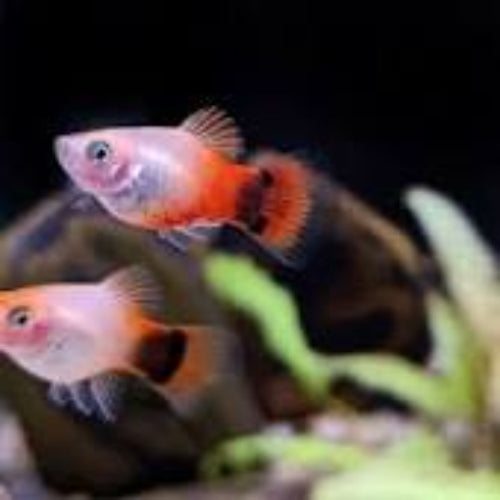Top Fin Aquatics
Red Top Mickey Mouse Platy
Red Top Mickey Mouse Platy
Couldn't load pickup availability
Red Top Mickey Mouse Platy (Xiphophorus maculatus)
The Red Top Mickey Mouse Platy is a vibrant and captivating freshwater fish, known for its striking appearance and ease of care. Its bright red dorsal fin and distinctive Mickey Mouse-shaped pattern near the tail make it a standout in any aquarium. This hardy and adaptable fish thrives in community tanks, coexisting peacefully with other non-aggressive species. Active and playful, it is often seen swimming energetically throughout the tank.
Origin
Central America – specifically Guatemala and Honduras. This variety is man-made, selectively bred for its unique coloration and pattern.
Temperature
Ideal range: 20–26°C (68–79°F)
Feeding
A varied diet is essential. Offer high-quality flake food, supplemented with frozen or freeze-dried bloodworms, daphnia, and brine shrimp to maintain health and vibrant colors.
Water Quality
-
pH: 7.0–8.0
-
Water hardness: Moderate
Ideal Aquarium Size
Minimum tank size: 40 liters. A well-planted aquarium with ample swimming space and hiding spots is recommended.
Lifespan
With proper care, Red Top Mickey Mouse Platies can live 3–5 years, maintaining their vibrant coloration throughout their life.
Community Tank Compatibility
Peaceful and sociable, making it an excellent addition to community aquariums with other non-aggressive species.
Breeding
Red Top Mickey Mouse Platies are livebearers. Females give birth to free-swimming fry. A breeding tank with dense plant cover and stable water conditions is ideal. Fry should be separated from adults to ensure survival.
Sample photo is for reference only. Exact fish may vary in size and colour
Share




